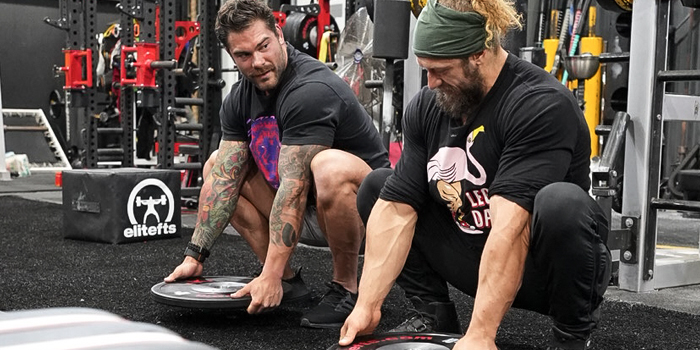
Have you downloaded a program that promised strength gains in just a few short weeks? I have. When I was done, I successfully gained some kilos in the squat, bench press, OR deadlift. But after that, I had to rest and decrease my training since my muscles were so exhausted. I did a form top and never gained any real strength at all.
I've made this mistake many times.
Almost every time, in the beginning, I thought it was something I did wrong since I couldn’t keep the gains the program was bringing. Later, I realized the structure of these programs helped me get out the strength I already had, but to focus all I had on ONE exercise and ONE lift.
RECENT: Why You Should Perform Pause Squats Above the Knees
Sure, it would be cool if you could increase in all three lifts at once for a competition, but it seldomly promises those kinds of gains. Since you're at the edge of your capacity, it doesn’t need much to fuck up your plans. I won’t give any program names, but I think you can relate to the concept and recognize some programs you’ve done in the past had similar conclusions.
I can’t blame someone for doing this. No one wants to struggle day after day with small increases. Everyone wants to make big progress in a short time. And you do if you follow these programs. Realize, the results don’t last! So, in my mind, this is just a waste of time. If you mean business and want to get stronger day after day, week after week, month after month, and year after year, that kind of program isn’t for you. Try to find a structure that works on your fitness, that helps you keep and improve your technical skill in the main exercise, and gets your nervous system used to moving big weights.
What Kind of Lifter Are You?
To learn how you should structure your training, you need to know what kind of lifter you are. There are four types of lifters:
Type 1: Strong lifters with bad technique.
Type 2: Weak lifters with bad technique.
Type 3: Weak lifters with good technique.
Type 4: Strong lifters with good technique.
The lifters that make the most gains from the programs I describe above are Type 1 and 2. They can make gains when they train technique and improve their skills to move bigger weights. Type 3 and 4 won’t get as big of results as the first two groups by squatting four days a week or performing 10x10 reps in the bench press. The gains from such a program basically come from technique improvement and not from strength development. If the technique was good enough to work on your pure strength in these exercises, your nervous system would crash pretty fast. As long as your technique is suffering, you can lift in high volume. Furthermore, when your technique is good enough to showcase a high level of strength, you can’t perform with the same volume.
Even if you belong in the first two groups, my experience says you still have more to win by training for strength development than to take this shortcut for a one-rep max that doesn’t last.
To make it even more complicated, the truth is that you could belong in more than one of the above categories. Maybe you are strong with a poor technique in the bench press, but you are weak with good technique in your squat. On top of that, you could be strong with good deadlift technique. This means you have to do an individual analysis of your lifts to make the best development for you!
When you spot weaknesses and execute the correct exercises to get rid of them, you have to do a new analysis to find your new weak points. So, it goes on and on through life. This makes it very hard to plan and perform the training ultimately. It could be good advice to get a good trainer who looks at your lifts and does the analysis, even if you plan your training by yourself in the end.
I think most people use car inspections in the same way. Even if you're a great mechanic, you still need the car to pass inspection.
Conclusion
- Find your weak spots.
- Get rid of them.
- Perfect your technique.
- Find new weak spots.
- Get rid of them.
- Perfect your technique.
- Repeat!
Stefan Waltersson is a professional strength coach certified by Westside Barbell, lecturer, physiotherapist, author, personal trainer, kinesiologist, sports massage therapist, nurse assistant, and founder of Seminoff Sport & Rehab in 2004. Stefan has previously worked in neurology (Sahlgrenska University Hospital) and with researching doctors in microbiology and clinical chemistry.










